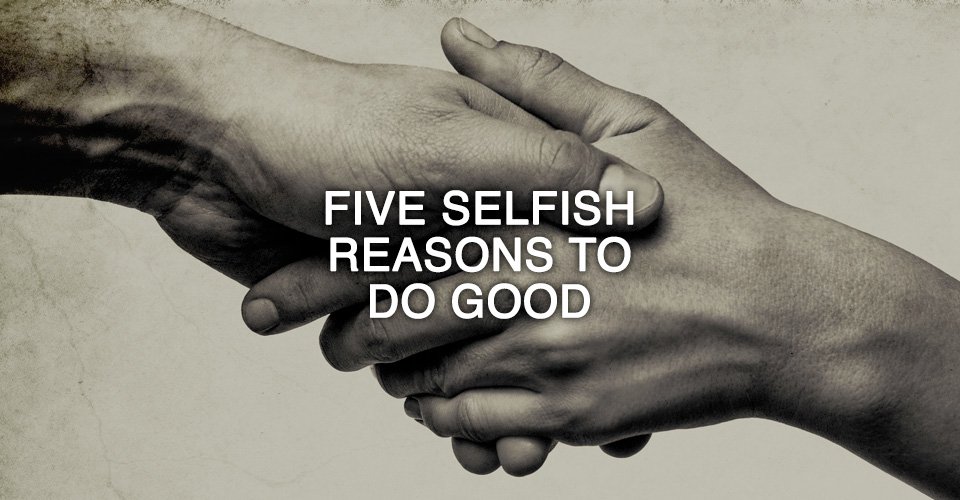Five Selfish Reasons to Do Good
Have you ever noticed that people who engage in volunteer work seem super happy – maybe even obnoxiously so? Well, according to science, they actually do have plenty to smile about. Doing a good deed helps not only the beneficiary, but the humanitarian as well. Here are five reasons why engaging in service work can benefit us all:
Altruism Boosts Your Mental Health
BMC Public Health analyzed a myriad of studies and found that volunteering mitigated depression, increased life satisfaction, and had an overall positive effect on the study participants’ sense of well-being. This effect could be a culmination of the benefits listed below, or it could simply represent a mind at ease. When we help others, we become more at peace with our self-image, our world, and the role we play in our community. Volunteering gives us a sense of purpose. It would make sense that, by internalizing and validating our role as a helper, we can guard against the insidious sense of sadness that comes from feeling disconnected and incomplete.
Do-Gooders Live Longer
According to a study published in the American Journal of Public Health, helping others in a concrete way seemed to serve as a buffer in regards to the relationship between stress and mortality. Specifically, when a participant in the study helped others regularly, the stress that they felt in their daily life was less likely to lead to an early death. This was especially true when the help they provided was something tangible – for example, bringing a new mother a fresh meal to help out, or doing her dishes for her, as opposed to simply congratulating her and offering good wishes.
Helpers and Donors Are Less Stressed
Generous and kind people have been proven to exhibit less physical signs of stress than their stingy and selfish counterparts. In scientific studies, altruism has been shown to significantly lower blood pressure, reduce risk of hypertension, and lower cortisol levels. This effect was proven to be true not only for those who volunteered their time, but also for those who donated money. Generosity, as it turns out, may help the giver even more than the recipient.
Goodness Begets Goodness
When encouraging our children to help others, we often tell them to remember a time when somebody helped them. As it turns out, however, reminding them of their own altruistic actions might be more effective. According to a study published by the Association for Psychological Science, thinking about what we’ve given before makes us more likely to give again. Rather than counting our blessings, we should count the ways in which we have been able to bless others.
Helpers are Happy
Most of us enjoy the warm, fuzzy feeling that overtakes us when we do something kind. Did you know, however, that psychologists have a term for this? When you help somebody, your brain’s pleasure and reward centers are activated, and endorphins are released. This is called a “helper’s high,” and it is as physical as it is emotional. You will feel more connected, satisfied, and grateful – and possibly even become addicted to the rush.
Go do something nice today. Do it for someone else, or take one of the reasons above to heart and do it for yourself. As Brian Tracy said, “Love only grows by sharing. You can only have more for yourself by giving it away to others.”
The post Five Selfish Reasons to Do Good appeared first on I Heart Intelligence.



























